Filter by
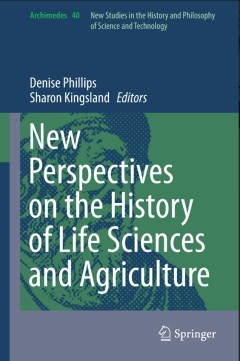
New Perspectives on the History of Life Sciences and Agriculture
This volume explores problems in the history of science at the intersection of life sciences and agriculture, from the mid-eighteenth to the mid-twentieth century. Taking a comparative national perspective, the book examines agricultural practices in a broad sense, including the practices and disciplines devoted to land management, forestry, soil science, and the improvement and management of c…
- Edition
- 1
- ISBN/ISSN
- 1385-0180
- Collation
- VII, 509
- Series Title
- Archimedes
- Call Number
- -

GTPases Versatile Regulators of Signal Transduction in Plants
G proteins are the key regulators for a wide range of cellular processes in animals and plants. In comparison to animals and yeast, plants have a single Rho-GTPase subfamily called Rho-like GTPases (ROPs). The ROP family of monomeric GTPases has emerged as a versatile and key regulator in plant signal transduction processes. During the past few years’ studies on plant RHO-type (ROP) GTPase ha…
- Edition
- -
- ISBN/ISSN
- 978-3-319-11611-2
- Collation
- -
- Series Title
- -
- Call Number
- -
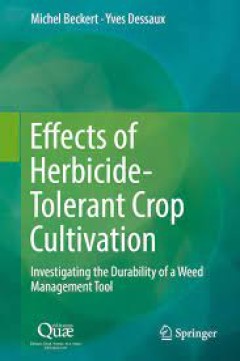
Effects of Herbicide-Tolerant Crop Cultivation Investigating the Durability …
Overall, this work identifies key points to be taken into account when drawing up guidelines that govern the use of herbicide-tolerant (HT) crops in order to preserve the effectiveness of this innovation over time. This multidisciplinary expert report, based on an international literature review, assesses the effects of the cultivation of crops possessing HT traits. HT crops may appear to be u…
- Edition
- -
- ISBN/ISSN
- 978-94-024-1007-5
- Collation
- -
- Series Title
- -
- Call Number
- -
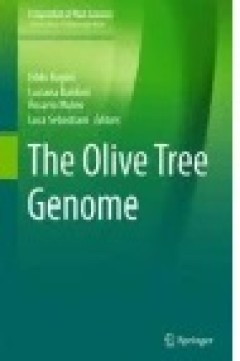
The Olive Tree Genome
The individual chapters discuss genetic resources; classic and modern breeding methods for providing new olive cultivars; the genotype x environment interactions determining the response to biotic and abiotic stresses; fruit metabolism related to oil production and the synthesis of health beneficial molecules; the mapping of genes and quantitative trait locus; and genomic, transcriptomic and pr…
- Edition
- -
- ISBN/ISSN
- 978-3-319-48887-5
- Collation
- XI, 193
- Series Title
- Compendium of Plant Genomes
- Call Number
- -
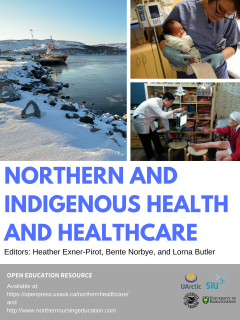
Northern and Indigenous Health and Healthcare
The provision of northern health care entails many unique challenges and circumstances that are rarely represented in mainstream health sciences education. This OpenEd Resource provides accessible content on health and health care from a northern perspective for the growing number of health professionals being educated in northern communities.
- Edition
- -
- ISBN/ISSN
- 978-0-88880-627-7
- Collation
- -
- Series Title
- -
- Call Number
- 613 NOR n
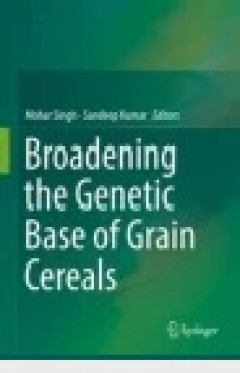
Broadening the Genetic Base of Grain Cereals
This book offers comprehensive coverage of important grain cereals including their origin and distribution, crop gene pool, level of diversity, production constraints, traits of importance for genetic base widening, crop improvement methodologies, genome mapping, genomics for breeding, and future strategies. The chapters, contributed by eminent crop researchers from around the world, provide ra…
- Edition
- -
- ISBN/ISSN
- 978-81-322-3613-9
- Collation
- -
- Series Title
- -
- Call Number
- 630.2
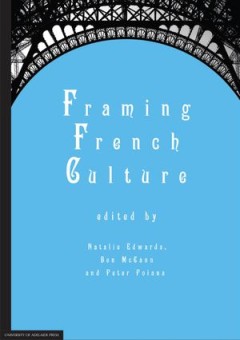
Framing French Culture
Throughout this book, the concept of framing is used to look at art, photography, scientific drawings and cinema as visually constituted, spatially bounded productions. The way these genres relate to that which exists beyond the frame, by means of plastic, chemically transposed, pencil-sketched or moving images allows us to decipher the particular language of the visual and at the same time cir…
- Edition
- -
- ISBN/ISSN
- 9781922064875
- Collation
- -
- Series Title
- -
- Call Number
- 306 FRA

What If We Don't Die? The Morality of Immortality
This book deals with the very real possibility of earthly immortality and the human and societal implications of such immortality, including whether it is desirable. It looks at what makes immortality appear so attractive and at the possibility that we would be better served with longer lives and the freedom to terminate our lives at the time when life has given us all the joy, inspiration a…
- Edition
- -
- ISBN/ISSN
- 978-3-319-19093-8
- Collation
- VIII, 183
- Series Title
- -
- Call Number
- -
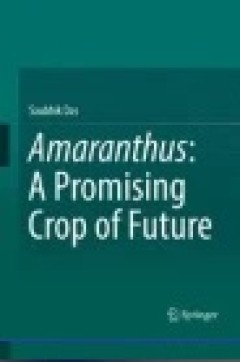
Amaranthus: A Promising Crop of Future
This book serves the larger community of plant researchers working on the taxonomy, species delimitation, phylogeny, and biogeography of pseudo-cereals, with a special emphasis on amaranths. It also provides extensive information on the nutritive value of underutilized pseudo-cereals, the goal being to broaden the vegetable list. Amaranthus is a cosmopolitan genus of annual or short-lived pe…
- Edition
- Ed. 1
- ISBN/ISSN
- 978-981-10-1469-7
- Collation
- IX, 208
- Series Title
- -
- Call Number
- 630 DAS a
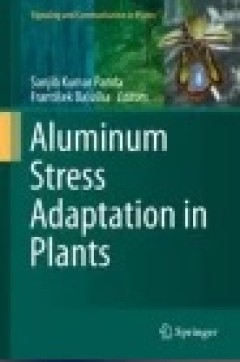
Aluminum Stress Adaptation in Plants
This book is an overview of our current understanding of aluminium toxicity and tolerance in plants. It covers all relevant aspects from molecular and cellular biology, to genetic approaches, root biology and plant physiology. The contribution of arbuscular mycorrhizal fungi to alleviating aluminium toxicity is also discussed. Over 40% of total agricultural land resources are acidic in nature, …
- Edition
- Ed. 1
- ISBN/ISSN
- 978-3-319-19968-9
- Collation
- IX, 274
- Series Title
- Signaling and Communication in Plants
- Call Number
- 630 ALU a
 Computer Science, Information & General Works
Computer Science, Information & General Works  Philosophy & Psychology
Philosophy & Psychology  Religion
Religion  Social Sciences
Social Sciences  Language
Language  Pure Science
Pure Science  Applied Sciences
Applied Sciences  Art & Recreation
Art & Recreation  Literature
Literature  History & Geography
History & Geography